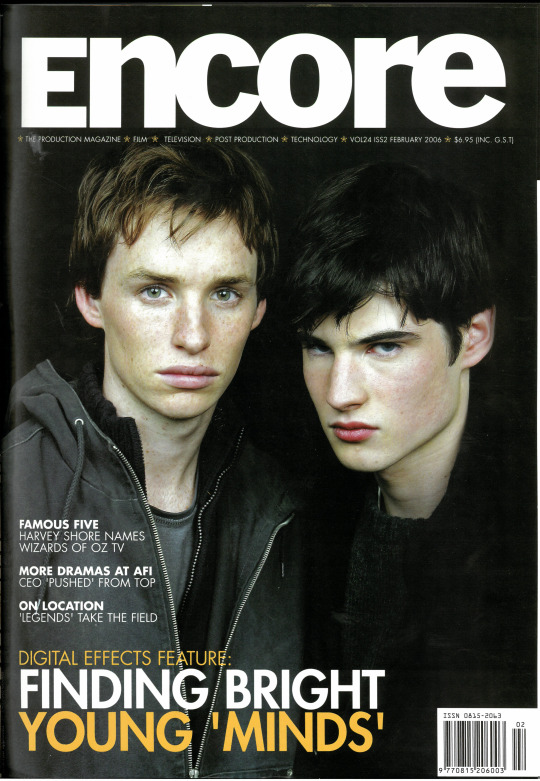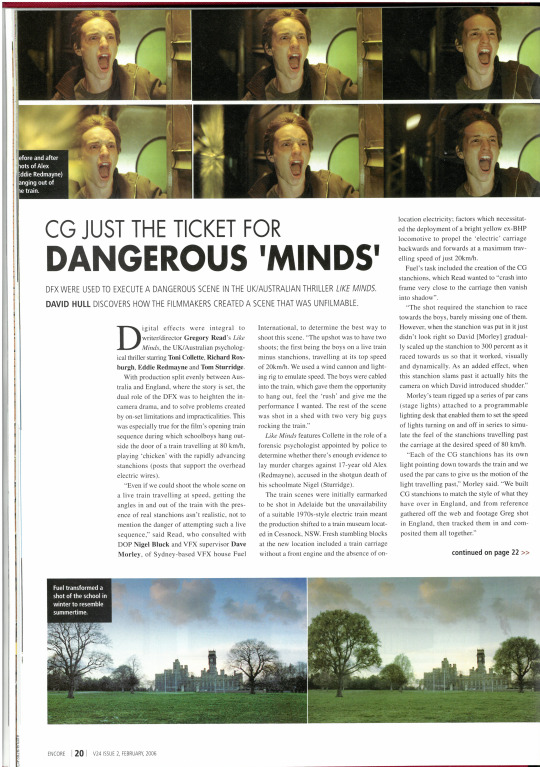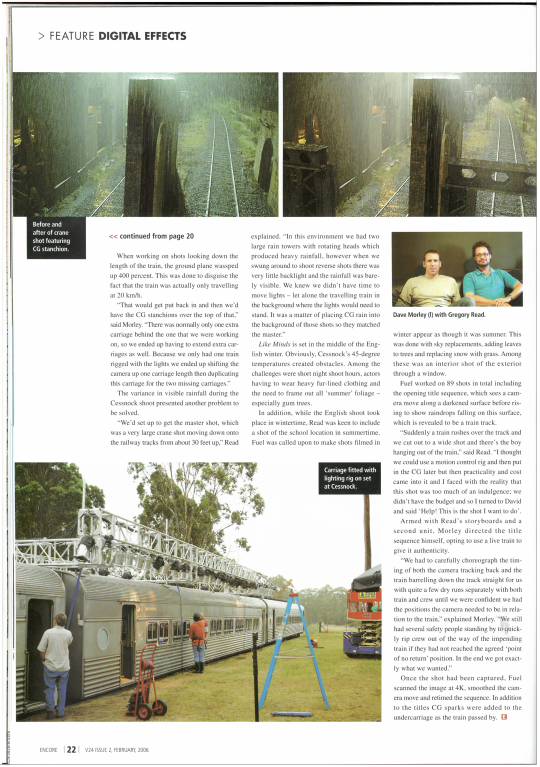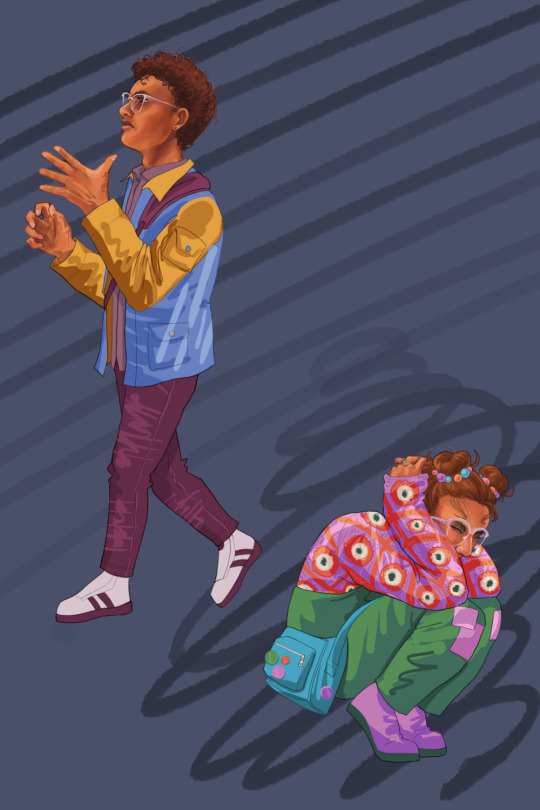#Australian stage production
Explore tagged Tumblr posts
Text
Which version of this do you prefer?






Please see tags of original post for further notes
#okay so normally I would not do a poll thats just different theatrical revivals#which I mostly have not been counting as separate versions for these#(and also because its often about whether theres any access to a specific revival)#HOWEVER. I make an exception with Chess because famously different productions can be radically different#and rewrite the book/show in *huge* ways#I mostly went with assembling the versions wikipedia lists the differences of because its easy to see that they are super different#but with all the many differences in versions#I'm sure there are more floating around#also I know the 2008 concert version is basically just using the london version#but for this poll in particular its a notable enough specific version that I wanted to keep it on#especially because I believe its the one used as the current “official” version#you can take picking the london version over it as signaling a preference for the original london cast/staging#also I have no idea if that image is from the official australian version but its the best one I could find lol#chess the musical#chess the musical london#chess 2008 concert#chess the musical 2008#chess the musical broadway#chess the musical australia#chess pa svenska#benny andersson#bjorn ulvaeus#tim rice#musicals#musical theater#theater#chess concept album#chess the musical concept#chess#chess musical
24 notes
·
View notes
Text
guess whos doing their uni assignment on the cursed child
#frick yeah dawg#its currently nearing 3am for me. why do the producers/stage managers gatekeep how they make special effects#like now i gotta source tumblr blogs 🙄#so funny i had to analyse a review of the australian production which was just calling hpcc a ‘queer romance’ the entire time#LOLS so validating 😎#makes me insane sometimes how the one part production and the cursed child in general is so skimmed over#whatever in tired as hell i need to finish this#harry potter#hp#hpcc#cursed child#harry potter and the cursed child#scorpius malfoy#albus severus potter#scorbus#rewriting
41 notes
·
View notes
Text
My McLuhan lecture on enshittification

IT'S THE LAST DAY for the Kickstarter for the audiobook of The Bezzle, the sequel to Red Team Blues, narrated by @wilwheaton! You can pre-order the audiobook and ebook, DRM free, as well as the hardcover, signed or unsigned. There's also bundles with Red Team Blues in ebook, audio or paperback.

youtube
Last night, I gave the annual Marshall McLuhan lecture at the Transmediale festival in Berlin. The event was sold out and while there's a video that'll be posted soon, they couldn't get a streaming setup installed in the Canadian embassy, where the talk was held:
https://transmediale.de/en/2024/event/mcluhan-2024
The talk went of fabulously, and was followed by commentary from Frederike Kaltheuner (Human Rights Watch) and a discussion moderated by Helen Starr. While you'll have to wait a bit for the video, I thought that I'd post my talk notes from last night for the impatient among you.
I want to thank the festival and the embassy staff for their hard work on an excellent event. And now, on to the talk!
Last year, I coined the term 'enshittification,' to describe the way that platforms decay. That obscene little word did big numbers, it really hit the zeitgeist. I mean, the American Dialect Society made it their Word of the Year for 2023 (which, I suppose, means that now I'm definitely getting a poop emoji on my tombstone).
So what's enshittification and why did it catch fire? It's my theory explaining how the internet was colonized by platforms, and why all those platforms are degrading so quickly and thoroughly, and why it matters – and what we can do about it.
We're all living through the enshittocene, a great enshittening, in which the services that matter to us, that we rely on, are turning into giant piles of shit.
It's frustrating. It's demoralizing. It's even terrifying.
I think that the enshittification framework goes a long way to explaining it, moving us out of the mysterious realm of the 'great forces of history,' and into the material world of specific decisions made by named people – decisions we can reverse and people whose addresses and pitchfork sizes we can learn.
Enshittification names the problem and proposes a solution. It's not just a way to say 'things are getting worse' (though of course, it's fine with me if you want to use it that way. It's an English word. We don't have der Rat für Englisch Rechtschreibung. English is a free for all. Go nuts, meine Kerle).
But in case you want to use enshittification in a more precise, technical way, let's examine how enshittification works.
It's a three stage process: First, platforms are good to their users; then they abuse their users to make things better for their business customers; finally, they abuse those business customers to claw back all the value for themselves. Then, they die.
Let's do a case study. What could be better than Facebook?
Facebook is a company that was founded to nonconsensually rate the fuckability of Harvard undergrads, and it only got worse after that.
When Facebook started off, it was only open to US college and high-school kids with .edu and k-12.us addresses. But in 2006, it opened up to the general public. It told them: “Yes, I know you’re all using Myspace. But Myspace is owned by Rupert Murdoch, an evil, crapulent senescent Australian billionaire, who spies on you with every hour that God sends.
“Sign up with Facebook and we will never spy on you. Come and tell us who matters to you in this world, and we will compose a personal feed consisting solely of what those people post for consumption by those who choose to follow them.”
That was stage one. Facebook had a surplus — its investors’ cash — and it allocated that surplus to its end-users. Those end-users proceeded to lock themselves into FB. FB — like most tech businesses — has network effects on its side. A product or service enjoys network effects when it improves as more people sign up to use it. You joined FB because your friends were there, and then others signed up because you were there.
But FB didn’t just have high network effects, it had high switching costs. Switching costs are everything you have to give up when you leave a product or service. In Facebook’s case, it was all the friends there that you followed and who followed you. In theory, you could have all just left for somewhere else; in practice, you were hamstrung by the collective action problem.
It’s hard to get lots of people to do the same thing at the same time. You and your six friends here are going to struggle to agree on where to get drinks after tonight's lecture. How were you and your 200 Facebook friends ever gonna agree on when it was time to leave Facebook, and where to go?
So FB’s end-users engaged in a mutual hostage-taking that kept them glued to the platform. Then FB exploited that hostage situation, withdrawing the surplus from end-users and allocating it to two groups of business customers: advertisers, and publishers.
To the advertisers, FB said, 'Remember when we told those rubes we wouldn’t spy on them? We lied. We spy on them from asshole to appetite. We will sell you access to that surveillance data in the form of fine-grained ad-targeting, and we will devote substantial engineering resources to thwarting ad-fraud. Your ads are dirt cheap to serve, and we’ll spare no expense to make sure that when you pay for an ad, a real human sees it.'
To the publishers, FB said, 'Remember when we told those rubes we would only show them the things they asked to see? We lied!Upload short excerpts from your website, append a link, and we will nonconsensually cram it into the eyeballs of users who never asked to see it. We are offering you a free traffic funnel that will drive millions of users to your website to monetize as you please, and those users will become stuck to you when they subscribe to your feed.' And so advertisers and publishers became stuck to the platform, too, dependent on those users.
The users held each other hostage, and those hostages took the publishers and advertisers hostage, too, so that everyone was locked in.
Which meant it was time for the third stage of enshittification: withdrawing surplus from everyone and handing it to Facebook’s shareholders.
For the users, that meant dialing down the share of content from accounts you followed to a homeopathic dose, and filling the resulting void with ads and pay-to-boost content from publishers.
For advertisers, that meant jacking up prices and drawing down anti-fraud enforcement, so advertisers paid much more for ads that were far less likely to be seen by a person.
For publishers, this meant algorithmically suppressing the reach of their posts unless they included an ever-larger share of their articles in the excerpt, until anything less than fulltext was likely to be be disqualified from being sent to your subscribers, let alone included in algorithmic suggestion feeds.
And then FB started to punish publishers for including a link back to their own sites, so they were corralled into posting fulltext feeds with no links, meaning they became commodity suppliers to Facebook, entirely dependent on the company both for reach and for monetization, via the increasingly crooked advertising service.
When any of these groups squawked, FB just repeated the lesson that every tech executive learned in the Darth Vader MBA: 'I have altered the deal. Pray I don’t alter it any further.'
Facebook now enters the most dangerous phase of enshittification. It wants to withdraw all available surplus, and leave just enough residual value in the service to keep end users stuck to each other, and business customers stuck to end users, without leaving anything extra on the table, so that every extractable penny is drawn out and returned to its shareholders.
But that’s a very brittle equilibrium, because the difference between “I hate this service but I can’t bring myself to quit it,” and “Jesus Christ, why did I wait so long to quit? Get me the hell out of here!” is razor thin
All it takes is one Cambridge Analytica scandal, one whistleblower, one livestreamed mass-shooting, and users bolt for the exits, and then FB discovers that network effects are a double-edged sword.
If users can’t leave because everyone else is staying, when when everyone starts to leave, there’s no reason not to go, too.
That’s terminal enshittification, the phase when a platform becomes a pile of shit. This phase is usually accompanied by panic, which tech bros euphemistically call 'pivoting.'
Which is how we get pivots like, 'In the future, all internet users will be transformed into legless, sexless, low-polygon, heavily surveilled cartoon characters in a virtual world called "metaverse," that we ripped off from a 25-year-old satirical cyberpunk novel.'
That's the procession of enshittification. If enshittification were a disease, we'd call that enshittification's "natural history." But that doesn't tell you how the enshittification works, nor why everything is enshittifying right now, and without those details, we can't know what to do about it.
What led to the enshittocene? What is it about this moment that led to the Great Enshittening? Was it the end of the Zero Interest Rate Policy? Was it a change in leadership at the tech giants? Is Mercury in retrograde?
None of the above.
The period of free fed money certainly led to tech companies having a lot of surplus to toss around. But Facebook started enshittifying long before ZIRP ended, so did Amazon, Microsoft and Google.
Some of the tech giants got new leaders. But Google's enshittification got worse when the founders came back to oversee the company's AI panic (excuse me, 'AI pivot').
And it can't be Mercury in retrograde, because I'm a cancer, and as everyone knows, cancers don't believe in astrology.
When a whole bunch of independent entities all change in the same way at once, that's a sign that the environment has changed, and that's what happened to tech.
Tech companies, like all companies, have conflicting imperatives. On the one hand, they want to make money. On the other hand, making money involves hiring and motivating competent staff, and making products that customers want to buy. The more value a company permits its employees and customers to carve off, the less value it can give to its shareholders.
The equilibrium in which companies produce things we like in honorable ways at a fair price is one in which charging more, worsening quality, and harming workers costs more than the company would make by playing dirty.
There are four forces that discipline companies, serving as constraints on their enshittificatory impulses.
First: competition. Companies that fear you will take your business elsewhere are cautious about worsening quality or raising prices.
Second: regulation. Companies that fear a regulator will fine them more than they expect to make from cheating, will cheat less.
These two forces affect all industries, but the next two are far more tech-specific.
Third: self-help. Computers are extremely flexible, and so are the digital products and services we make from them. The only computer we know how to make is the Turing-complete Von Neumann machine, a computer that can run every valid program.
That means that users can always avail themselves of programs that undo the anti-features that shift value from them to a company's shareholders. Think of a board-room table where someone says, 'I've calculated that making our ads 20% more invasive will net us 2% more revenue per user.'
In a digital world, someone else might well say 'Yes, but if we do that, 20% of our users will install ad-blockers, and our revenue from those users will drop to zero, forever.'
This means that digital companies are constrained by the fear that some enshittificatory maneuver will prompt their users to google, 'How do I disenshittify this?'
Fourth and finally: workers. Tech workers have very low union density, but that doesn't mean that tech workers don't have labor power. The historical "talent shortage" of the tech sector meant that workers enjoyed a lot of leverage over their bosses. Workers who disagreed with their bosses could quit and walk across the street and get another job – a better job.
They knew it, and their bosses knew it. Ironically, this made tech workers highly exploitable. Tech workers overwhelmingly saw themselves as founders in waiting, entrepreneurs who were temporarily drawing a salary, heroic figures of the tech mission.
That's why mottoes like Google's 'don't be evil' and Facebook's 'make the world more open and connected' mattered: they instilled a sense of mission in workers. It's what Fobazi Ettarh calls 'vocational awe, 'or Elon Musk calls being 'extremely hardcore.'
Tech workers had lots of bargaining power, but they didn't flex it when their bosses demanded that they sacrifice their health, their families, their sleep to meet arbitrary deadlines.
So long as their bosses transformed their workplaces into whimsical 'campuses,' with gyms, gourmet cafeterias, laundry service, massages and egg-freezing, workers could tell themselves that they were being pampered – rather than being made to work like government mules.
But for bosses, there's a downside to motivating your workers with appeals to a sense of mission, namely: your workers will feel a sense of mission. So when you ask them to enshittify the products they ruined their health to ship, workers will experience a sense of profound moral injury, respond with outrage, and threaten to quit.
Thus tech workers themselves were the final bulwark against enshittification,
The pre-enshittification era wasn't a time of better leadership. The executives weren't better. They were constrained. Their worst impulses were checked by competition, regulation, self-help and worker power.
So what happened?
One by one, each of these constraints was eroded until it dissolved, leaving the enshittificatory impulse unchecked, ushering in the enshittoscene.
It started with competition. From the Gilded Age until the Reagan years, the purpose of competition law was to promote competition. US antitrust law treated corporate power as dangerous and sought to blunt it. European antitrust laws were modeled on US ones, imported by the architects of the Marshall Plan.
But starting in the neoliberal era, competition authorities all over the world adopted a doctrine called 'consumer welfare,' which held that monopolies were evidence of quality. If everyone was shopping at the same store and buying the same product, that meant it was the best store, selling the best product – not that anyone was cheating.
And so all over the world, governments stopped enforcing their competition laws. They just ignored them as companies flouted them. Those companies merged with their major competitors, absorbed small companies before they could grow to be big threats. They held an orgy of consolidation that produced the most inbred industries imaginable, whole sectors grown so incestuous they developed Habsburg jaws, from eyeglasses to sea freight, glass bottles to payment processing, vitamin C to beer.
Most of our global economy is dominated by five or fewer global companies. If smaller companies refuse to sell themselves to these cartels, the giants have free rein to flout competition law further, with 'predatory pricing' that keeps an independent rival from gaining a foothold.
When Diapers.com refused Amazon's acquisition offer, Amazon lit $100m on fire, selling diapers way below cost for months, until diapers.com went bust, and Amazon bought them for pennies on the dollar, and shut them down.
Competition is a distant memory. As Tom Eastman says, the web has devolved into 'five giant websites filled with screenshots of text from the other four,' so these giant companies no longer fear losing our business.
Lily Tomlin used to do a character on the TV show Laugh In, an AT&T telephone operator who'd do commercials for the Bell system. Each one would end with her saying 'We don't care. We don't have to. We're the phone company.'
Today's giants are not constrained by competition.
They don't care. They don't have to. They're Google.
That's the first constraint gone, and as it slipped away, the second constraint – regulation – was also doomed.
When an industry consists of hundreds of small- and medium-sized enterprises, it is a mob, a rabble. Hundreds of companies can't agree on what to tell Parliament or Congress or the Commission. They can't even agree on how to cater a meeting where they'd discuss the matter.
But when a sector dwindles to a bare handful of dominant firms, it ceases to be a rabble and it becomes a cartel.
Five companies, or four, or three, or two, or just one company finds it easy to converge on a single message for their regulators, and without "wasteful competition" eroding their profits, they have plenty of cash to spread around.
Like Facebook, handing former UK deputy PM Nick Clegg millions every year to sleaze around Europe, telling his former colleagues that Facebook is the only thing standing between 'European Cyberspace' and the Chinese Communist Party.
Tech's regulatory capture allows it to flout the rules that constrain less concentrated sectors. They can pretend that violating labor, consumer and privacy laws is fine, because they violate them with an app.
This is why competition matters: it's not just because competition makes companies work harder and share value with customers and workers, it's because competition keeps companies from becoming too big to fail, and too big to jail.
Now, there's plenty of things we don't want improved through competition, like privacy invasions. After the EU passed its landmark privacy law, the GDPR, there was a mass-extinction event for small EU ad-tech companies. These companies disappeared en masse, and that's fine.
They were even more invasive and reckless than US-based Big Tech companies. After all, they had less to lose. We don't want competition in commercial surveillance. We don't want to produce increasing efficiency in violating our human rights.
But: Google and Facebook – who pretend they are called Alphabet and Meta – have been unscathed by European privacy law. That's not because they don't violate the GDPR (they do!). It's because they pretend they are headquartered in Ireland, one of the EU's most notorious corporate crime-havens.
And Ireland competes with the EU other crime havens – Malta, Luxembourg, Cyprus and sometimes the Netherlands – to see which country can offer the most hospitable environment for all sorts of crimes. Because the kind of company that can fly an Irish flag of convenience is mobile enough to change to a Maltese flag if the Irish start enforcing EU laws.
Which is how you get an Irish Data Protection Commission that processes fewer than 20 major cases per year, while Germany's data commissioner handles more than 500 major cases, even though Ireland is nominal home to the most privacy-invasive companies on the continent.
So Google and Facebook get to act as though they are immune to privacy law, because they violate the law with an app; just like Uber can violate labor law and claim it doesn't count because they do it with an app.
Uber's labor-pricing algorithm offers different drivers different payments for the same job, something Veena Dubal calls 'algorithmic wage discrimination.' If you're more selective about which jobs you'll take, Uber will pay you more for every ride.
But if you take those higher payouts and ditch whatever side-hustle let you cover your bills which being picky about your Uber drives, Uber will incrementally reduce the payment, toggling up and down as you grow more or less selective, playing you like a fish on a line until you eventually – inevitably – lose to the tireless pricing robot, and end up stuck with low wages and all your side-hustles gone.
Then there's Amazon, which violates consumer protection laws, but says it doesn't matter, because they do it with an app. Amazon makes $38b/year from its 'advertising' system. 'Advertising' in quotes because they're not selling ads, they're selling placements in search results.
The companies that spend the most on 'ads' go to the top, even if they're offering worse products at higher prices. If you click the first link in an Amazon search result, on average you will pay a 29% premium over the best price on the service. Click one of the first four items and you'll pay a 25% premium. On average you have to go seventeen items down to find the best deal on Amazon.
Any merchant that did this to you in a physical storefront would be fined into oblivion. But Amazon has captured its regulators, so it can violate your rights, and say, "it doesn't count, we did it with an app"
This is where that third constraint, self-help, would sure come in handy. If you don't want your privacy violated, you don't need to wait for the Irish privacy regulator to act, you can just install an ad-blocker.
More than half of all web users are blocking ads. But the web is an open platform, developed in the age when tech was hundreds of companies at each others' throats, unable to capture their regulators.
Today, the web is being devoured by apps, and apps are ripe for enshittification. Regulatory capture isn't just the ability to flout regulation, it's also the ability to co-opt regulation, to wield regulation against your adversaries.
Today's tech giants got big by exploiting self-help measures. When Facebook was telling Myspace users they needed to escape Rupert Murdoch’s evil crapulent Australian social media panopticon, it didn’t just say to those Myspacers, 'Screw your friends, come to Facebook and just hang out looking at the cool privacy policy until they get here'
It gave them a bot. You fed the bot your Myspace username and password, and it would login to Myspace and pretend to be you, and scrape everything waiting in your inbox, copying it to your FB inbox, and you could reply to it and it would autopilot your replies back to Myspace.
When Microsoft was choking off Apple's market oxygen by refusing to ship a functional version of Microsoft Office for the Mac – so that offices were throwing away their designers' Macs and giving them PCs with upgraded graphics cards and Windows versions of Photoshop and Illustrator – Steve Jobs didn't beg Bill Gates to update Mac Office.
He got his technologists to reverse-engineer Microsoft Office, and make a compatible suite, the iWork Suite, whose apps, Pages, Numbers and Keynote could perfectly read and write Microsoft's Word, Excel and Powerpoint files.
When Google entered the market, it sent its crawler to every web server on Earth, where it presented itself as a web-user: 'Hi! Hello! Do you have any web pages? Thanks! How about some more? How about more?'
But every pirate wants to be an admiral. When Facebook, Apple and Google were doing this adversarial interoperability, that was progress. If you try to do it to them, that's piracy.
Try to make an alternative client for Facebook and they'll say you violated US laws like the Digital Millennium Copyright Act and EU laws like Article 6 of the EUCD.
Try to make an Android program that can run iPhone apps and play back the data from Apple's media stores and they'd bomb you until the rubble bounced.
Try to scrape all of Google and they'll nuke you until you glowed.
Tech's regulatory capture is mind-boggling. Take that law I mentioned earlier, Section 1201 of the Digital Millennium Copyright Act or DMCA. Bill Clinton signed it in 1998, and the EU imported it as Article 6 of the EUCD in 2001
It is a blanket prohibition on removing any kind of encryption that restricts access to a copyrighted work – things like ripping DVDs or jailbreaking a phone – with penalties of a five-year prison sentence and a $500k fine for a first offense.
This law has been so broadened that it can be used to imprison creators for granting access to their own creations
Here's how that works: In 2008, Amazon bought Audible, an audiobook platform, in an anticompetitive acquisition. Today, Audible is a monopolist with more than 90% of the audiobook market. Audible requires that all creators on their platform sell with Amazon's "digital rights management," which locks it to Amazon's apps.
So say I write a book, then I read it into a mic, then I pay a director and an engineer thousands of dollars to turn that into an audiobook, and sell it to you on the monopoly platform, Audible, that controls more than 90% of the market.
If I later decide to leave Amazon and want to let you come with me to a rival platform, I am out of luck. If I supply you with a tool to remove Amazon's encryption from my audiobook, so you can play it in another app, I commit a felony, punishable by a 5-year sentence and a half-million-dollar fine, for a first offense.
That's a stiffer penalty than you would face if you simply pirated the audiobook from a torrent site. But it's also harsher than the punishment you'd get for shoplifting the audiobook on CD from a truck-stop. It's harsher than the sentence you'd get for hijacking the truck that delivered the CD.
So think of our ad-blockers again. 50% of web users are running ad-blockers. 0% of app users are running ad-blockers, because adding a blocker to an app requires that you first remove its encryption, and that's a felony (Jay Freeman calls this 'felony contempt of business-model').
So when someone in a board-room says, 'let's make our ads 20% more obnoxious and get a 2% revenue increase,' no one objects that this might prompt users to google, 'how do I block ads?' After all, the answer is, 'you can't.'
Indeed, it's more likely that someone in that board room will say, 'let's make our ads 100% more obnoxious and get a 10% revenue increase' (this is why every company wants you to install an app instead of using its website).
There's no reason that gig workers who are facing algorithmic wage discrimination couldn't install a counter-app that coordinated among all the Uber drivers to reject all jobs unless they reach a certain pay threshold.
No reason except felony contempt of business model, the threat that the toolsmiths who built that counter-app would go broke or land in prison, for violating DMCA 1201, the Computer Fraud and Abuse Act, trademark, copyright, patent, contract, trade secrecy, nondisclosure and noncompete, or in other words: 'IP law.'
'IP' is just a euphemism for 'a law that lets me reach beyond the walls of my company and control the conduct of my critics, competitors and customers.' And 'app' is just a euphemism for 'a web-page wrapped enough IP to make it a felony to mod it to protect the labor, consumer and privacy rights of its user.'
We don't care. We don't have to. We're the phone company.
But what about that fourth constraint: workers?
For decades, tech workers' high degrees of bargaining power and vocational awe put a ceiling on enshittification. Even after the tech sector shrank to a handful of giants. Even after they captured their regulators so they could violate our consumer, privacy and labor rights. Even after they created 'felony contempt of business model' and extinguished self-help for tech users. Tech was still constrained by their workers' sense of moral injury in the face of the imperative to enshittify.
Remember when tech workers dreamed of working for a big company for a few years, before striking out on their own to start their own company that would knock that tech giant over?
Then that dream shrank to: work for a giant for a few years, quit, do a fake startup, get acqui-hired by your old employer, as a complicated way of getting a bonus and a promotion.
Then the dream shrank further: work for a tech giant for your whole life, get free kombucha and massages on Wednesdays.
And now, the dream is over. All that’s left is: work for a tech giant until they fire your ass, like those 12,000 Googlers who got fired last year six months after a stock buyback that would have paid their salaries for the next 27 years.
Workers are no longer a check on their bosses' worst impulses
Today, the response to 'I refuse to make this product worse' is, 'turn in your badge and don't let the door hit you in the ass on the way out.'
I get that this is all a little depressing
OK, really depressing.
But hear me out! We've identified the disease. We've traced its natural history. We've identified its underlying mechanism. Now we can get to work on a cure.
There are four constraints that prevent enshittification: competition, regulation, self-help and labor.
To reverse enshittification and guard against its reemergence, we must restore and strengthen each of these.
On competition, it's actually looking pretty good. The EU, the UK, the US, Canada, Australia, Japan and China are all doing more on competition than they have in two generations. They're blocking mergers, unwinding existing ones, taking action on predatory pricing and other sleazy tactics.
Remember, in the US and Europe, we already have the laws to do this – we just stopped enforcing them in the Helmut Kohl era.
I've been fighting these fights with the Electronic Frontier Foundation for 22 years now, and I've never seen a more hopeful moment for sound, informed tech policy.
Now, the enshittifiers aren't taking this laying down. The business press can't stop talking about how stupid and old-fashioned all this stuff is. They call people like me 'hipster antitrust,' and they hate any regulator who actually does their job.
Take Lina Khan, the brilliant head of the US Federal Trade Commission, who has done more in three years on antitrust than the combined efforts of all her predecessors over the past 40 years. Rupert Murdoch's Wall Street Journal has run more than 80 editorials trashing Khan, insisting that she's an ineffectual ideologue who can't get anything done.
Sure, Rupert, that's why you ran 80 editorials about her.
Because she can't get anything done.
Even Canada is stepping up on competition. Canada! Land of the evil billionaire! From Ted Rogers, who owns the country's telecoms; to Galen Weston, who owns the country's grocery stores; to the Irvings, who basically own the entire province of New Brunswick.
Even Canada is doing something about this. Last autumn, Trudeau's government promised to update Canada's creaking competition law to finally ban 'abuse of dominance.'
I mean, wow. I guess when Galen Weston decided to engage in a criminal conspiracy to fix the price of bread – the most Les Miz-ass crime imaginable – it finally got someone's attention, eh?
Competition has a long way to go, but all over the world, competition law is seeing a massive revitalization. Ronald Reagan and Margaret Thatcher put antitrust law in a coma in the 80s – but it's awake, it's back, and it's pissed.
What about regulation? How will we get tech companies to stop doing that one weird trick of adding 'with an app' to their crimes and escaping enforcement?
Well, here in the EU, they're starting to figure it out. This year, the Digital Markets Act and the Digital Services Act went into effect, and they let people who get screwed by tech companies go straight to the federal European courts, bypassing the toothless watchdogs in Europe's notorious corporate crime havens like Ireland.
In America, they might finally get a digital privacy law. You people have no idea how backwards US privacy law is. The last time the US Congress enacted a broadly applicable privacy law was in 1988.
The Video Privacy Protection Act makes it a crime for video-store clerks to leak your video-rental history. It was passed after a right-wing judge who was up for the Supreme Court had his rentals published in a DC newspaper. The rentals weren't even all that embarrassing!
Sure, that judge, Robert Bork, wasn't confirmed for the Supreme Court, but that was because he was a virulently racist loudmouth and a crook who served as Nixon's Solicitor General.
But Congress got the idea that their video records might be next, freaked out, and passed the VPPA.
That was the last time Americans got a big, national privacy law. Nineteen. Eighty. Eight.
It's been a minute.
And the thing is, there's a lot of people who are angry about stuff that has some nexus with America's piss-poor privacy landscape. Worried that Facebook turned Grampy into a Qanon? That Insta made your teen anorexic? That TikTok is brainwashing millennials into quoting Osama Bin Laden?
Or that cops are rolling up the identities of everyone at a Black Lives Matter protest or the Jan 6 riots by getting location data from Google?
Or that Red State Attorneys General are tracking teen girls to out-of-state abortion clinics?
Or that Black people are being discriminated against by online lending or hiring platforms?
Or that someone is making AI deepfake porn of you?
Having a federal privacy law with a private right of action – which means that individuals can sue companies that violate their privacy – would go a long way to rectifying all of these problems. There's a big coalition for that kind of privacy law.
What about self-help? That's a lot farther away, alas.
The EU's DMA will force tech companies to open up their walled gardens for interoperation. You'll be able to use Whatsapp to message people on iMessage, or quit Facebook and move to Mastodon, but still send messages to the people left behind.
But if you want to reverse-engineer one of those Big Tech products and mod it to work for you, not them, the EU's got nothing for you.
This is an area ripe for improvement, and I think the US might be the first ones to open this up.
It's certainly on-brand for the EU to be forcing tech companies to do things a certain way, while the US simply takes away tech companies' abilities to prevent others from changing how their stuff works.
My big hope here is that Stein's Law will take hold: 'Anything that can't go on forever will eventually stop'
Letting companies decide how their customers must use their products is simply too tempting an invitation to mischief. HP has a whole building full of engineers thinking of new ways to lock your printer to its official ink cartridges, forcing you to spend $10,000/gallon on ink to print your boarding passes and shopping lists.
It's offensive. The only people who don't agree are the people running the monopolies in all the other industries, like the med-tech monopolists who are locking their insulin pumps to their glucose monitors, turning people with diabetes into walking inkjet printers.
Finally, there's labor. Here in Europe, there's much higher union density than in the US, which American tech barons are learning the hard way. There is nothing more satisfying in the daily news than the latest salvo by Nordic unions against that Tesla guy (Musk is the most Edison-ass Tesla guy imaginable).
But even in the USA, there's a massive surge in tech unions. Tech workers are realizing that they aren't founders in waiting. The days of free massages and facial piercings and getting to wear black tee shirts that say things your boss doesn't understand are coming to an end.
In Seattle, Amazon's tech workers walked out in sympathy with Amazon's warehouse workers, because they're all workers.
The only reason the tech workers aren't monitored by AI that notifies their managers if they visit the toilet during working hours is their rapidly dwindling bargaining power. The way things are going, Amazon programmers are going to be pissing in bottles next to their workstations (for a guy who built a penis-shaped rocket, Jeff Bezos really hates our kidneys).
We're seeing bold, muscular, global action on competition, regulation and labor, with self-help bringing up the rear. It's not a moment too soon, because the bad news is, enshittification is coming to every industry.
If it's got a networked computer in it, the people who made it can run the Darth Vader MBA playbook on it, changing the rules from moment to moment, violating your rights and then saying 'It's OK, we did it with an app.'
From Mercedes renting you your accelerator pedal by the month to Internet of Things dishwashers that lock you into proprietary dishsoap, enshittification is metastasizing into every corner of our lives.
Software doesn't eat the world, it enshittifies it
But there's a bright side to all this: if everyone is threatened by enshittification, then everyone has a stake in disenshittification.
Just as with privacy law in the US, the potential anti-enshittification coalition is massive, it's unstoppable.
The cynics among you might be skeptical that this will make a difference. After all, isn't "enshittification" the same as "capitalism"?
Well, no.
Look, I'm not going to cape for capitalism here. I'm hardly a true believer in markets as the most efficient allocators of resources and arbiters of policy – if there was ever any doubt, capitalism's total failure to grapple with the climate emergency surely erases it.
But the capitalism of 20 years ago made space for a wild and wooly internet, a space where people with disfavored views could find each other, offer mutual aid, and organize.
The capitalism of today has produced a global, digital ghost mall, filled with botshit, crapgadgets from companies with consonant-heavy brand-names, and cryptocurrency scams.
The internet isn't more important than the climate emergency, nor gender justice, racial justice, genocide, or inequality.
But the internet is the terrain we'll fight those fights on. Without a free, fair and open internet, the fight is lost before it's joined.
We can reverse the enshittification of the internet. We can halt the creeping enshittification of every digital device.
We can build a better, enshittification-resistant digital nervous system, one that is fit to coordinate the mass movements we will need to fight fascism, end genocide, and save our planet and our species.
Martin Luther King said 'It may be true that the law cannot make a man love me, but it can stop him from lynching me, and I think that's pretty important.'
And it may be true that the law can't force corporate sociopaths to conceive of you as a human being entitled to dignity and fair treatment, and not just an ambulatory wallet, a supply of gut-bacteria for the immortal colony organism that is a limited liability corporation.
But it can make that exec fear you enough to treat you fairly and afford you dignity, even if he doesn't think you deserve it.
And I think that's pretty important.

If you'd like an essay-formatted version of this post to read or share, here's a link to it on pluralistic.net, my surveillance-free, ad-free, tracker-free blog:
https://pluralistic.net/2024/01/30/go-nuts-meine-kerle#ich-bin-ein-bratapfel/a>


Back the Kickstarter for the audiobook of The Bezzle here!

Image: Drahtlos (modified) https://commons.wikimedia.org/wiki/File:Motherboard_Intel_386.jpg
CC BY-SA 4.0 https://creativecommons.org/licenses/by-sa/4.0/deed.en
-
cdessums (modified) https://commons.wikimedia.org/wiki/File:Monsoon_Season_Flagstaff_AZ_clouds_storm.jpg
CC BY-SA 2.0 https://creativecommons.org/licenses/by-sa/2.0/deed.en
404 notes
·
View notes
Text




















NATIONS HOSTING BOTH REPLICA AND NON-REPLICA POTO
United Kingdom: The UK saw the world premiere of ALW's POTO in 1986. They've also since seen the RAH staging (2011), the original UK Tours (1993-2000), the UK Tour Revival (2000), and the West End Revival (2021). It was also in the UK the new Restaged Tour was first launched (2012-2013).
United States: The US was the first opening outside the UK, premiering in 1988, and also had three national tours (1989-2010) and the Las Vegas Spectacular (2006-2012). They furthermore hosted the Restaged Tour (2013-2020).
Austria: Austria was the fourth country to host the original staging (1988-1993). In 2024 they welcomed back the musical, this time as the Restaged Tour.
Canada: Canada was the fifth country to host the original staging, in 1989. The production ran for a whopping ten years, closing in 1999. There were also various Canadian tours (1991-1998), touring nationally and internationally. They later hosted multiple visits of both US Tour and the Restaged Tour.
Australia: Australia was the eight country to host the original staging, opening in Melbourne in 1990 and later turning into a Australian and NZ Tour (until 1998). The musical would return many times as a leg of the World Tour. Uniquely, they also hosted the first out-door version at Sydney Harbour in 2022, as well as staging the Restaged Tour in Sydney and Melbourne (2022-2023).
Spain: The original Madrid production ran from 2002-2004. When POTO returned in 2023 it was in the form of the new "Mediterranean" version opening in Trieste in Italy the same year. The production also visited Bilbao, before returning to Madrid.
Dubai: The first POTO production to hit Dubai was the World Tour in 2019. In 2024 POTO returned, this time as a part of the Middle East Tour, presenting the Romanian/Norwegian production.
Switzerland: The original Basel production ran from 1995-1997. This year POTO returned in the form of the Romanian/Norwegian production, touring the Middle East and Europe.
Sweden: Sweden was the sixth country to host the original staging, in Stockholm for an impressive six years (1989-1995). They also later did a revival (2016-2017). They furthermore hosted the Finnish/Swedish version in Gothenburg (2017-2018), as well as a unique new staging in Kristianstad (2000-2003).
Soon to be added: Belgium (1999-2000 / 2025). Ireland was also meant to host the UK Tour Revival in May 2020, but for obvious reasons that was cancelled. They had previously hosted the Restaged Tour in 2012-2013. (Also, I have not included concert versions)
38 notes
·
View notes
Text
Obscure Media: Encore VFX Article
Brought to us courtesy of @widowswinter, who's been working hard to dredge up these gems from the past.
We've all seen this cover by now, but in case you didn't know, Encore was an Australian film trade magazine. It switched to an online format and then seems to have ceased publication around 2013. Some of their articles can be found at https://mumbrella.com.au/, but none going back to 2006. Widowswinter accessed this article via the National Library of Australia, which houses physical copies of the magazine and will make copies/scans of some of their collection.

Full Article and a plain text version below the break:


ENCORE I 22 I V24 ISSUE 2, FEBRUARY, 2006
Digital effects were integral to writer/director Gregory Read's Like Minds, the UK/Australian psychological thriller starring Toni Collette, Richard Roxburgh, Eddie Redmayne and Tom Sturridge.
With production split evenly between Australia and England, where the story is set, the dual role of the DFX was to heighten the in camera drama, and to solve problems created by on-set limitations and impracticalities. This was especially true for the film's opening train sequence during which schoolboys hang outside the door of a train travelling at 80 km/h, playing 'chicken' with the rapidly advancing stanchions (posts that support the overhead electric wires).
"Even if we could shoot the whole scene on a live train travelling at speed, getting the angles in and out of the train with the presence of real stanchions isn't realistic, not to mention the danger of attempting such a live sequence," said Read, who consulted with DOP Nigel Bluck and VFX supervisor Dave Morley, of Sydney-based VFX house Fuel International, to determine the best way to shoot this scene. "The upshot was to have two shoots; the first being the boys on a live train minus stanchions, travelling at its top speed of 20km/h. We used a wind cannon and lighting rig to emulate speed. The boys were cabled into the train, which gave them the opportunity to hang out, feel the 'rush' and give me the performance I wanted . The rest of the scene was shot in a shed with two very big guys rocking the train."
Like Minds features Collette in the role of a forensic psychologist appointed by police to determine whether there's enough evidence to lay murder charges against 17-year old Alex (Redmayne), accused in the shotgun death of his schoolmate Nigel (Sturridge).
The train scenes were initially earmarked to be shot in Adelaide but the unavailability of a suitable 1970s-style electric train meant the production shifted to a train museum located in Cessnock, NSW. Fresh stumbling blocks at the new location included a train carriage without a front engine and the absence of on location electricity; factors which necessitated the deployment of a bright yellow ex-BHP locomotive to propel the 'electric' carriage backwards and forwards at a maximum travelling speed of just 20km/h.
Fuel's task included the creation of the CG stanchions, which Read wanted to "crash into frame very close to the carriage then vanish into shadow".
"The shot required the stanchion to race towards the boys, barely missing one of them. However, when the stanchion was put in it just didn't look right so David [Morley] gradually scaled up the stanchion to 300 percent as it raced towards us so that it worked, visually and dynamically. As an added effect, when this stanchion slams past it actually hits the camera on which David introduced shudder."
Morley's team rigged up a series of par cans (stage lights) attached to a programmable lighting desk that enabled them to set the speed of lights turning on and off in series to simulate the feel of the stanchions travelling past the carriage at the desired speed of 80 km/h.
"Each of the CG stanchions has its own light pointing down towards the train and we used the par cans to give us the motion of the light travelling past," Morley said. "We built CG stanchions to match the style of what they have over in England, and from reference gathered off the web and footage Greg shot in England, then tracked them in and composited them all together."
When working on shots looking down the length of the train, the ground plane was sped up 400 percent. This was done to disguise the fact that the train was actually only travelling at 20 km/h.
"That would get put back in and then we'd have the CG stanchions over the top of that," said Morley. 'There was normally only one extra carriage behind the one that we were working on, so we ended up having to extend extra carriages as well. Because we only had one train rigged with the lights we ended up shifting the camera up one carriage length then duplicating this carriage for the two missing carriages."
The variance in visible rainfall during the Cessnock shoot presented another problem to be solved.
"We'd set up to get the master shot, which was a very large crane shot moving down onto the railway tracks from about 30 feet up," Read explained. "In this environment we had two large rain towers with rotating heads which produced heavy rainfall, however when we swung around to shoot reverse shots there was very little backlight and the rainfall was barely visible. We knew we didn't have time to move lights - let alone the travelling train in the background where the lights would need to stand. It was a matter of placing CG rain into the background of those shots so they matched the master."
Like Minds is set in the middle of the English winter. Obviously, Cessnock's 45-degree temperatures created obstacles. Among the challenges were short night shoot hours, actors having to wear heavy fur-lined clothing and the need to frame out all 'summer' foliage - especially gum trees.
In addition, while the English shoot took place in wintertime, Read was keen to include a shot of the school location in summertime. Fuel was called upon to make shots filmed in winter appear as though it was summer. This was done with sky replacements, adding leaves to trees and replacing snow with grass. Among these was an interior shot of the exterior through a window.
Fuel worked on 89 shots in total including the opening title sequence, which sees a camera move along a darkened surface before rising to show raindrops falling on this surface, which is revealed to be a train track.
"Suddenly a train rushes over the track and we cut out to a wide shot and there's the boy hanging out of the train," said Read. "I thought we could use a motion control rig and then put in the CG later but then practicality and cost came into it and I faced with the reality that this shot was too much of an indulgence; we didn't have the budget and so I turned to David and said 'Help! This is the shot I want to do'.
Armed with Read's storyboards and a second unit, Morley directed the title sequence himself, opting to use a live train to give it authenticity.
"We had to carefully choreograph the timing of both the camera tracking back and the train barrelling down the track straight for us with quite a few dry runs separately with both train and crew until we were confident we had the positions the camera needed to be in relation to the train," explained Morley. "We still had several safety people standing by to quickly rip crew out of the way of the impending train if they had not reached the agreed ‘point of no return' position. In the end we got exactly what we wanted."
Once the shot had been captured, Fuel scanned the image at 4K, smoothed the camera move and retimed the sequence. In addition to the titles CG sparks were added to the undercarriage as the train passed by.
[Like Minds Masterpost]
#real title of this article “A Love Story: Gregory J Read and his Train”#they picked the funniest frames of Alex to use as illustration i love it#like minds#like minds media#murderous intent#like minds 2006#alex forbes#eddie redmayne#tom sturridge#nigel colbie
64 notes
·
View notes
Text

Here is a drawing of one of my favourite changes in choreography in the Australian deh production :)
During Good For You, after Alana and Jared have their little solos, Alana comes to the front of the stage and crouches down with her hands over her head, completely still. At the same time, Jared goes upstage and paces back and forth very quickly - every time he has to turn around he makes stilted and frustrated gestures as if he doesn’t know what to do with himself. I was very excited by this, as it is so unlike the broadway version of this scene where they stand symmetrically on opposite sides of the stage. Instead, Alana and Jared’s reaction to their feelings are clearly contrasted against each other. It seemed so natural too; while they move in formation for a lot of gfy, here it was like they had to take a break from the song because of how overwhelmed they were! Which only made it easier to empathise with them. The whole song was spectacular of course but this particular decision I think was very successful. I have always been intrigued by the contrast between Alana and Jared and it was really brought to the forefront in this moment.
#dear evan hansen#my art#jared kleinman#alana beck#jacob rozario#carmel rodrigues#I lost my mind when this happened it was so perfect to me#another thing that hit me hard in gfy was during jared and evan’s fight#when they do the ‘I thought the only reason you talked to me was because of your car insurance’ ‘so??’ (always been a fav moment of mine)#obviously there are tonnes of ways to do the ‘so??’ but I was expecting the indignant and kinda sputtering lashing out ‘so’#instead jared totally shrunk in on himself grabbed onto his bag strap in his hands and said it so softly#and he was really up in evan’s personal space earlier so here it was like oh wow that really struck him#like for another one of my favourite lines (‘heyy so my parents are out of town this weekend-’) he did a little bouncy dance up to evan and#-touched him as he spoke - including booping his nose. he said out loud ‘we. can. drink- boop! whatever we want!’#very silly#anyway just a few fun moments that my fellow jared enjoyers may be happy to hear about#also carmel’s alana was Far on the overwhelmingly high energy / bouncy / big facial expressions side of the alana scale - which I Love#and jacob was a more drawling / condescending jared - less frantic and more subtle in his amusement/indignation#I loved it - I think there are so many ways to play these characters that offers a slightly different insight into their internal state#god I have so many things to say about this showww
24 notes
·
View notes
Note
Hi! I’m pretty new to the world of Achilles and Patroclus (I read The Song Of Achilles last month) and I just saw your post about your love for them. When you said “there's just so much stuff out there about them (tsoa, hades game, the iliad, a bunch of other myths and adaptations, non fiction books, academic papers etc)” I was wondering if you could touch on the other myths and adaptations part maybe? I’m not exactly sure where to begin there but I would appreciate any guidance you could give!
Oh boy I don't know where to start either because there's a LOT. I don't want to overwhelm you so I'll just list a few key myths and adaptations off the top of my head:
Adaptations
So as far as adaptations go, I will include works where both Achilles and Patroclus show up and that are inspired by the Iliad.
Hades Game: I'm pretty sure you're already familiar with this, just mentioning it just in case!
Aristos the musical: it's a musical as the name suggests, and it revolves around Achilles and Patroclus' lives from Pelion all the way to Troy. It's really lovely and has made me emotional on numerous occasions and I love revisiting it every so often! It also has a Tumblr account: @aristosmusical
Troilus and Cressida: this is Shakespeare's take on the Trojan War and it's quite interesting, not really faithful to the Iliad but offers a sort of different perspective on the characters and the events that led to Hector's death.
Achilles (1995) by Barry JC Purves: it's a short stop motion film using clay puppets, it's on Youtube and it's only 11 mins and I think it's worth a watch! I find it very compelling visually and any adaptation where Achilles and Patroclus are lovers is a plus in my book 🫶
Holding Achilles: this is an Australian stage production by the Dead Puppet Society, I really enjoyed it and I found it an interesting blend of TSOA and Iliad Patrochilles, which also featured some cool new elements that I hadn't really seen before. It used to be free to watch for a while but now I think you have to pay to watch it, there's more info on their website.
The Silence of the Girls: a novel by Pat Barker, it's a take on the events of the Iliad mostly through Briseis' eyes, I personally didn't really like the book or the characterisations but hey both Achilles and Patroclus are in it so it might be worth a read.
There are some other novels I've heard of where Achilles and Patroclus appear (A Thousand Ships by Natalie Haynes, Wrath Goddess Sing by Maya Deane) and also a TV show called Troy: Fall of a City but I haven't read/watched them so I can't really rec them
Myths
Most myths revolve around Achilles, there aren't that many with Patroclus I'm afraid, but here are some of my favourites:
Achilleid by Publius Papinius Statius: this is an epic poem about Achilles' stay on Skyros disguised as a girl and his involvement with Deidameia. It's interesting but I'd personally take the characterisations and events in it with a grain of salt because Romans were notorious for their unsympathetic portrayal of Greek Homeric heroes but it's still a cool thing that's out there and free to read online.
Iphigenia at Aulis: a tragedy by the ancient Greek playwright Euripides, it's basically the dramatised version of the myth of Iphigenia's sacrifice in Aulis which predates the Iliad, there are many obscure versions of this myth but Euripides' sort of updated version is my favourite, I will never shut up about this play!! Lots of a nuance and very interesting portrayals of Achilles, Agamemnon, Menelaus, Clytemnestra, Iphigenia and pretty much everyone in there, well worth a read.
Lost plays: there are several plays in which Achilles appears but that have been lost or survive only in fragments, but two of my favourites are Euripides' Telephus and Aeschylus' Myrmidons. Telephus takes place before the Trojan War, while the Greeks are on their way to Troy. I really like Achilles' characterisation in the fragments that remain and also the fact that he was already renowned for his knowledge of medicine and healing despite how young he was. The fragments that survive from Aeschylus' Myrmidons I think are fewer but the play was extremely popular at the time it was presented to the public and it sparked a lot of controversy re: Achilles and Patroclus' relationship and who tops/bottoms so I think that's kind of funny lol.
There are lots of other obscure little myths about Achilles that I've picked up by reading various books, papers and wiki posts on the matter and that are just too numerous to list here, but what I will mention and that I think concludes the myths section of this post pretty neatly is that the Iliad and the Odyssey are not the only works about the Trojan War that were written, merely the only works that survived. The rest of the books in the Epic Cycle have been preserved either in fragmentary form or in descriptions in other works, and I think the Epic Cycle wiki page is a good place to start if you want to get an idea of what each of those books contained.
I hope this helped! 💙
#patrochilles#achilles#patroclus#the iliad#homer's iliad#if I remember anything else I'll probably add to this post but I think that should be enough for now#there's just! so much stuff!!#happy reading/viewing/listening 😁
56 notes
·
View notes
Text
Pixie and her relationships with the guys
I.E, what makes her relationships with the men memorable
Taglist: @mynameisnotlaura, @palindrome969


Chanxie (Chan x Kai) - Mother and Father duo
Popularity: 9/10
Labeled as the mother and father of the group, the two are extremely close. When the two of them are paired up together, they take on caretaking roles. She makes sure Chan is eating and drinking properly, going as far as to hiding his laptop when he gets too workaholic. This led to many fights in their early years, but now when he starts overworking himself, all she needs to do is give him a look and he then takes a break.
He introduced her to production pre-debut days. She is the only one in the group to be one of the producers that is not a part of 3racha
He helped her discover her love of cooking, particularly Australian foods.
When he starts getting homesick, she overnight ships ingredients to make homemade pizza or sashimi
He makes sure she’s in bed at a reasonable time
She is a shoulder to cry on for him and vice versa


Minai (Minho x Kai) - Mother and daughter
Popularity: 8/10
When Chan is the father, kind to Kai, Minho is the tough love. Sure, he makes sure she’s okay first if she gets hurt, but when he knows she’s okay, he roasts the hell out of her. The two have an... interesting relationship. The two could be having skin ship one second, and then wrestling the next.
Ex. “Have you eaten yet? Did you get hurt?” “Yes, Min. No, Min.” “You’re going to be” proceeds to chase her around the kitchen, going for her sides to tickle her.
Teases her about her height (How’s the breeze down there?)
She was the first one to eat lunch with him at the company
She comforted him when he got eliminated. (“So what if you got eliminated? You have a friend in me now. I refuse to leave you behind; you are my family now”)
Gets genuinely upset when he self-deprecates. He had to stop in front of her when she started crying
Cooking duo


Binxie (Changbin x Kai) - The lovebirds
Popularity: 9.5/10
The loudest two in the group become the quietest when the two are paired together. I mean it. Changbin can go from yelling in one second but when Kai is touching him? Sedated. They are each other's rocks, and they are never not touching each other when together. And they are always together.
Started calling her princess during the survival show
Always gropes his ass or tits (It's not in a sexual way, it genuinely gives her comfort)
Each other’s biggest cheerleaders
They always give each other praise and compliments
Whenever she starts crying on camera (Because let's face it, she’s very emotional), he cups her face and wipes the tears away himself. There is a five-minute compilation of him doing this on YouTube of just 2023 alone
Gym duo (They always go together. It's scary to see how much she gained muscle when she went with him)


Jinx (Hyunjin x Kai) - Sibling duo
Popularity: 6/10
The two are extremely close due to their dramatic flair. It seems like she is more dramatic than Hyunjin in some instances. She is like his big sister even though he’s older. They physically fight (Playfully, it’s all-in good fun), and she says he in her sleep paralysis demon at times.
Was the first person she came out to
She is helping him learn Mandarin
Gave each other black eyes once. The makeup artists had a field day with that one
Once, she hurt her ankle on stage by twisting it early in the performance. Hyunjin put her on his back and proceeded to finish the concert with her on his back.


Hanai (Jisung x Kai) - The loud introverts
Popularity: 6/10
What happens when you put Kai and Han in the same room? Opposite to Changbin and Kai. Loudest mfs EVER. They were forced to sit in different cars because they would scream like mfing seagulls. I mean it.
Helps Han with his anxiety
He helps her practice her rap
She fuels his americano addiction


Yonxie (Felix x Kai) - Baking duo
Popularity: 4/10
Kai and Felix together can only bring chaos. The two have been in a prank war for roughly five years. She always compliments him, to follow up with a slew of dance battles. She and him do so many tik tok challenges together, that her public tik tok is filled with dances from the two.
Tease each other on each other's accents
Cuddles everywhere
He is teaching her self-defense
She helped him come up with his brownie recipe
He is the testing dummy for all new baking creations.


Seungmai (Seungmin x Kai) - Puppy duo
Popularity: 7/10
Savages. They roast the hell out of each other. She tries to compliment him, and you know what he does? Call her a pervert. She proceeds to manhandle him, due to her being very strong, despite her small stature.
Laughs at him at every chance she gets
While Seungmin is the more hyperactive puppy, she is the sleepy kind
Has a collection of images on his phone of her asleep in places she isn’t supposed to be in


Jeongai (Jeongin x Kai) - Platonic soulmates
Popularity: 8/10
Since the two are the Maknaes of the group, they are extremely close. They are attached to the hip. If Kai isn’t with Changbin, she’s with I.N. He is the person to realize her love for singing more than dance.
The two always are seen asleep together. Where I.N goes, she goes
Was the first person to know of her mental problems
Extremely protective over her, more so than the other members
The only person he allows excessive amounts of skin ship from
They both go drinking together
#skz#bang chan#changbin#writing#han jisung#hyunjin#lee know#skz imagines#jeongin#lee felix#skzkaifei#seungmin#stray kids#skz 9th member#skz female member#skz female addition#skz female oc#skz oc#stray kids female member#stray kids female oc
57 notes
·
View notes
Text
Dacre Montgomery (‘Stranger Things’) on filming his Season 4 appearance from Australia: ‘I put everything into this moment’ [Exclusive Video Interview]
Sam Eckmann TV June 17, 2023 6:30AM
“I like to do a lot of character prep and development and sort of live in character,” explains Dacre Montgomery of his acting process. The breakout “Stranger Things” star made a surprise return to the hit Netflix series in Season 4 despite his character Billy being killed in the previous season. His appearance was brief, but it provided the actor with a unique filming opportunity and the chance to put a final touch on a role that means a great deal to him. “It’s a culmination of hundreds of hours of work and really living in character in many ways,” says Montgomery. Watch the exclusive video interview above.
The Duffer Brothers called Montgomery near the start of the global pandemic with the offer to return for some pivotal scenes with Max (Sadie Sink). “And then it became quite difficult to leave Australia,” says the actor, noting that he was stuck in his home country while the series was being filmed in Albuquerque, New Mexico.
Montgomery recorded lines of dialogue for Sink to work with as she filmed in the U.S., but it became too difficult a prospect for him to join her. To his surprise, production agreed to shoot his material in Perth. “They decided to shoot the scenes in my hometown, but a sound stage of the size that they needed, with a blue screen stage, didn’t exist. So they built one just for the one scene in Western Australia, which was awesome,” he admits. The costumes, wigs, and prosthetics for Billy were flown in from across the globe, and the actor worked with a local Australian team to put it all together.
“But the strangest part of it all was I was on a blue stage,” he admits. He had a tiny earpiece playing Sink’s lines for him, but he otherwise only had a tennis ball to act opposite. The performer describes the process as “highly emotional work,” not only because of the content of the scenes, but because of his deep attachment to his character. So despite the strange circumstances, filming by himself while in and out of hotel quarantine, Montgomery “put everything into this moment.”
Because of his isolation in Oz, Montgomery reveals that he had “no real context obviously of what was happening in the rest of the season.” This includes the setup that the villain Vecna (Jamie Campbell Bower) produces an illusion of Billy as a representation of Max’s grief, and as a way to lure her into accepting death. But Montgomery had no designs on portraying a new version of the character. “I really just wanted to play Billy for Billy, and give the sort of authenticity of the character work in that space,” he explains, “There’s so much core memory there of Billy and who he is. So this sort of materialization of him, it was important for me to play the character properly rather than trying to be an offshoot.”
Viewers may also describe Billy as a villain, but Montgomery is drawn to the discovery of what lurks beneath the surface of this kind of figure. “There’s this sort of truth in a weird sick way in the mask,” he explains, “These antagonists, or perceived antagonists, are trying to cover up deep trauma. So obviously that they wear this mask that’s outwardly facing.” During his time on “Stranger Things,” he enjoyed exploring what made Billy put on his mask in order to humanize the character. Montgomery had to mine his own personal fears and demons in order to tap into this facet of Billy. That process is scary, but also cathartic. “I think working with Billy, there was three or four years, however long I was involved with the show, of catharsis,” states Montgomery.
177 notes
·
View notes
Text
Did you know there are Discworld Events ? Such as conventions and immersive events and stage productions, exhibitions, shows and such like?
What do you mean No?
The humans behind Discworld Monthly not only run a newsletter, they also organise events!
Later this year they will be exhibiting and entertaining at Fantasy Forest Festival in Cheltenham, and they will be putting tickets on sale for Llamedos Holiday Camp, a Discworld immersive event in Llanelli.
There are plenty of other Discworld events which they don't organise too such as the Irish, Australian, German, Dutch, and Uk Discworld Convention
To find out more, head over to our events page
200 notes
·
View notes
Text

came across this photo on Pinterest last night and have no idea what it’s from (assuming some Australian stage production) but omfg it’s giving me Valvert vibes
24 notes
·
View notes
Text
The Meghan Show
In 2015, Sentebale hosted their annual chaity polo event at Val de Vie Estate in South Africa. I can no longer abide Sparry's insufferable voice, but this video footage from a pre-megxit fundraiser is markedly different from the staged Meghan shows featuring the "spare pair" of whinging nutburgers.


youtube
In April 2024 Sparry and wife filmed the Sentebale megflix event in Wellington, FL. They promoted the event as "glitzy."







Serena Williams traveled from Miami to witness and participate in her 2nd megflix production. She appears to have been the only "celebrity" on the set. Serena has previously expressed an interest in acting and is best friends with Kim Kardashian.


In 2022, Nacho formed polo team in Santa Barbara to "help" Sparry. To date, Netflix has not used any of the published (backgrid) images.


The Meghans invited celebrities to the 2022 event. Rebel Wilson's Australian mother offended the couple w/4 words: "where are your children?"

From Neil Sean: according to John Travolta's team, Harry demands that his WIFE (Meghan Markle, former briefcase model) present his awards.





2022 Briefcase Model
youtube
2024 Briefcase Model
youtube
#polo#south africa#megxit#nacho#where are your children?#santa barbara#rebel wilson#pwives#briefcase girl 24#fake awards#netflix#serena williams#revenge of her claw#wme#jill smoller#Wellington#Youtube
20 notes
·
View notes
Text
fraternising with the enemy - jude bellingham
extra - wikipedia: maia grace
summary: maia's wikipedia page

[Maia Grace attends the premiere event for the television series Good Trouble]
Maia Grace Taylor González is an English-Spanish actress best known by her stage name Maia Grace. Born on August 18, 2002, in Barcelona, Catalonia, Spain, she grew up in a multicultural household with her British father, James Taylor, and Spanish mother, María González. Maia has a younger brother named Lucas Taylor González.
Early life: Maia discovered her passion for acting at a young age and began performing in local theatre productions in Barcelona. She attended a local bilingual school, where she excelled both academically and artistically.
Career: Maia's journey into acting began with her breakout role in the Spanish television series Vergüenza Ajena (Embarrassing Moments) at the age of 10, which had a similar comedic style to the Australian series Mortified. Her endearing portrayal of a quirky and relatable teenager quickly captured the hearts of viewers across Spain.
Following the success of Vergüenza Ajena, Maia continued to hone her craft in various Spanish productions, including a feature film adaptation of the series titled Vergüenza Ajena: La Película (Embarrassing Moments: The Movie), which served as her debut in Spanish cinema. The film became a box office hit and solidified Maia's reputation as one of Spain's most promising young talents.
In 2013, Maia auditioned for the role of Callie Adams Foster in the American drama series The Fosters and landed the part. Her compelling portrayal of the troubled teenager navigating the foster care system earned her widespread acclaim and a dedicated following. The show concluded its five-season run in 2020.
In 2015, Maia transitioned to Hollywood with her role as McKenzie ("Mack") in the Disney Channel Original Movie Teen Beach Movie. Her performance garnered her international recognition and opened doors for her in the global entertainment industry.
In 2017, Maia reprised her role as McKenzie in the sequel Teen Beach Movie 2, further solidifying her presence in the entertainment industry.
In 2021, Maia reprised her role as Callie Adams Foster in the spin-off series Good Trouble, which follows Callie and her sister Mariana as they navigate adulthood in Los Angeles. Maia's performance in the series continued to showcase her talent and versatility as an actress.
Despite her burgeoning career in Hollywood, Maia always made it a priority to return to Barcelona from filming whenever she had the chance. She cherished the opportunity to be home with her loved ones and immerse herself in the vibrant culture of her hometown.
Personal life: Despite her rising fame, Maia remains grounded and values her close-knit family above all else. She is fluent in both English and Spanish, thanks to her multicultural upbringing. Maia is deeply proud of her Catalan heritage and often shares glimpses of her life in Barcelona on social media.
Maia's younger brother, Lucas, is her biggest supporter and occasional partner-in-crime. The siblings share a strong bond and often embark on adventures together, whether it's exploring the streets of Barcelona or attending football matches at Camp Nou. They have been avid supporters of FC Barcelona since their early childhood, sharing countless memories of cheering for their favourite team from the stands and celebrating victories together.
Filmography:
Vergüenza Ajena (2011–2012)
Vergüenza Ajena: La Película (2014)
Teen Beach Movie (2015)
Teen Beach Movie 2 (2017)
The Fosters (2013–2020)
Good Trouble (2021–present)
#actress!reader#actress!au#social media au#jude bellingham x reader#jude bellingham imagine#jude bellingham smau#football smau
33 notes
·
View notes
Text
ACT∞REACT | intro
------------------------------------------------------------------------------
date: october 17, 2024.
------------------------------------------------------------------------------

--edited by me
𝒊𝒏𝒕𝒓𝒐𝒅𝒖𝒄𝒊𝒏𝒈 𝒕𝒉𝒆 𝑨���𝑻𝑶𝑹𝑺
ACT’N’REACT (액트 앤 리액트), stylized as Act∞ReAct is a 9 member south korean idol girl group under ArcLight Entertainment and ODDSAINt. the group consists of members; Alice, Nümeora, Celestin, Veil, Zalafare, X’allamare, Vadya Rae, Avira, and Levana. the group officially debuted on October 30 2017 with the mini album, “ACT I: ASECENSiON STAGE” and title track "LA LA LOVE". they are most known for their unique concept and storyline and talents. all members identities were hidden until their debut. they made their debut in Japan in january 13 2018 with the single album “MYSTERiUM STAGE” after signing under 283 Production for Japan promotions.
INTRODUCTION: “ put on the mask ! we are act'n'react ! ”
FANDOM NAME: re:actors (레:배우)
LIGHTSTICK: (found off Pinterest)

LOGO:

OFFICIAL COLORS: eerie black (#1b1b1b), gloomy maroon (#510400), bloody red (#660000)

𝒑𝒖𝒕𝒕𝒊𝒏𝒈 𝒐𝒏 𝒕𝒉𝒆 𝑴𝑨𝑺𝑲
ALICE
Leader, Vocal, Rapper, Producer
February 14, 1997
Aquarius
Korean
Rep Emoji; 🔫🐺
Rep Color; black
Rep Flower; lily of the valley
Rep Weapon; pistol
Rep Fear; fear of failure
MBTI; ENTJ
5'6
VC: n/a yet
NÜMEORA
Composer, Dancer, Vocal, Visual
May 2, 1997
Taurus
Chinese
Rep Emoji; ⚔️🦋
Rep Color; pink
Rep Flower; nightshade
Rep Weapon; sword
Rep Fear; fear of darkness
MBTI; ISTJ
5'8
VC: n/a yet
CELESTIN
Choreographer, Dancer, Vocal
June 15, 1998
Gemini
Chinese-Taiwanese
Rep Emoji; 🪓🦊
Rep Color; silver / orange
Rep Flower; moonflower
Rep Weapon; axe
Rep Fear; fear of change
MBTI; ENFJ
5'4
VC: n/a yet
VEIL
Lyricst, Vocal, Rapper, Dancer
September 19, 1999
Virgo
Japanese
Rep Emoji; 🔪🦢
Rep Color; white / gold
Rep Flower; queen of the night
Rep Weapon; knife
Rep Fear; fear of loneliness
MBTI; ESFJ
5'5
VC: n/a yet
ZALAFARE (me)
Vocal, Dancer, Rapper, Center, Songwriter
November 17 1999
Scorpio
Haiqinian
Rep Emoji; 🏹🦁
Rep Color; royal purple
Rep Flower; chrysanthemum
Rep Weapon; bow and arrows
Rep Fear; fear of judgement
MBTI; ISTJ (formerly INTJ)
177cm (5’9)
VC: 96neko, Rubyeye
X'ALLAMARE
Choreographer, Rapper, Vocal, Dancer, FOG
December 21, 1999
Sagittarius
Japanese-French
Rep Emoji; ✂️🕷️
Rep Color; blood red
Rep Flower; roses
Rep Weapon; scissors
Rep Fear; fear of inferiority
MBTI; ISFP
5'6
VC: n/a yet
VADYA RAE
Lyricst, Rapper, Vocal, Dancer
January 3, 2000
Capricorn
Korean-American
Rep Emoji; 🗡️🐍
Rep Color; emerald green
Rep Flower; jade vines
Rep Weapon; poison / dagger
Rep Fear; fear of fire
MBTI; ISFP
178cm (5'10)
VC: n/a yet
AViRA
Producer, Vocal, Visual
April 20, 2000
Taurus
Korean
Rep Emoji; ⛓️🐻
Rep Color; sapphire blue
Rep Flower; delphiniums
Rep Weapon; chains
Rep Fear; fear of weakness
MBTI; ENTP
5'7
VC: n/a yet
LEVANA
Composer, Dancer, Vocal, Maknae
August 18, 2000
Leo
Korean-Australian
Rep Emoji; 🛡️🦌
Rep Color; indigo
Rep Flower; hyacinth
Rep Weapon; throwing stars / shield
Rep Fear; fear of new
MBTI; INFP
5'6
VC: n/a yet

-inspired by a chorus battle group i saw on youtube. so their storyline is based on that with some differences
-i LOVE their lore sm🤗
-the line distributions I will not be excited about since there's 9 members...but i have the discography planned out
-dark/light horror and actor concept. maybe a theatre elegant concept too
-close with DREAMCATCHER. Insomnias like us the most😖🤗
#reality shifter#reality shifting#shiftblr#shifting community#anti shifters dni#shifting#shifting motivation#reyaint#kpop shifting#kpop dr#kpop coed group#dr world#dr scrapbook
13 notes
·
View notes
Text

Greetings yet again folks! Before today's news i should ask this: what would you think when wearable tech is mentioned? AR/VR glasses? A smart watch? a pair of fancy glasses? nfc based products or was it something else for you?
what if i tell you there is a battery that is so stretchable and bendable that can be tailored between linings of your clothes now what would you think?
Meet the age of stretchable batteries people!
in that case i should mention when people of today was so busy with nonsense politics and rightist or leftist ideas there were quite a race between the biggest tech schools and companies for manufacturing this tech such as apple, samsung, stanford, Yokohama National University, zotach (japan based wearable tech company), sydney's UNCW, Australian research comity and more.. you get the idea..
so what is this tech in its core?

basically building more softer and more long term reliable materials to replace our common daily use batteries

in term of materials it nearly uses our common li-on batteries but these are mainly works like electrodes and often use polymers, hydrogels, and other flexible materials for electrodes and electrolytes. we can see in recent inovations include the use of stretchable conductors like gold nanowires or carbon nanotubes.
BUT what these mambo, jambo, wombo, combo means for public eye?
much longer active use time, higher adaptability, flexible form factor yet lower energy and power density.
for now this tech has been used in certain medical implant cases, wearable techs, tv's, and watches for now but there is some attempts to imply this in to textile industry recently..
and japan is seems like ahead of the race for now with Zotac’s VR GO 4.0 backpack

this is a backpack pc and its power source is tailored between in entire foam/ fiber pad. this "pc" is specifically made for VR/AR and streaming which includes
11th Gen Intel Core Mobile i7-11800H processor, an NVIDIA RTX A4500 graphics card with 20GB of GDDR6 memory and 7,168 CUDA cores, 16GB (32GB maximum) of DDR4 RAM, an M.2 slot for storage, a 2.5′ SATA 3 hard drive/SSD bay for storage, three USB 3.1 Type-A ports, a single USB 3.1 type-C port, DisplayPort, and a 12V DC outlet, all powered by dual 86.4 watt-hour hot-swappable batteries.
like i said this tech is still under developement stage and people still trying to make this tech better than other compettitives...
time will show us what will it gonna be turn out at the end..
lastly.. see you guys tomorrow...
sources:
https://onlinelibrary.wiley.com/doi/10.1002/adma.202204457
#tech#tech news#daily news#cyberpunk#future tech#scifi tech#research#rnd#r&d#battery#stretchable battery#apple#stanford#samsung#labs
11 notes
·
View notes
Text
Get to know Sri
Stage Name: Sri
Birth Name: Srihari Venkat
Nationality: Australian
Ethnicity: Indian
Position: Rapper, Dancer, Producer
Birthday: July 9 1988
Zodiac Sign: Cancer
Height: 170 cm (5'7")
Blood type: O+
MBTI: INTP
Representative animal: 🐱(I don't really remember if it is used to represent Lee Know as well, so feel free to correct me if I'm wrong)
Unit: DanceRacha, 3Racha(Don't really think it'd be 3 anymore tho-)
Facts about Sri
He was born in Brisbane, Australia
Has a younger sister who's 5 years younger than him
Came to Korea to train when he was 18
He had very little training in dance (the training being the dance classes he had joined when he was 7/8 years old for a few months) before he was recruited
Although He had been learning Carnatic music ever since he was 3, he stopped learning at the age of 14 (so about 11 years of experience)
He auditioned to be an idol out of spite for his dad
He had been doing his bachelor's degree and masters in architecture while being an idol as he 'wanted to have a back-up plan just in case'
He has a mole on his right cheekbone
He was a trainee for about 2 years
Nicknames given by STAY: Chan's wife, Nicknames given by the members: Eomma, Venki
He treats English as his first language. He can speak Japanese fluently, Tamil (his mother tongue), and Hindi to a decent extent. He can also speak French and Mandarin but no one really knows that he can speak those two languages
He can draw and paint quite well when given a reference but he says he lacks the creative skills to just visualise something and draw it
As per the members, he has quite a laid-back personality and is a comfort figure to all of them. They also say that he's quite good at giving advice even if he hadn't been in the situation himself
As per Chan, Sri struggles to express his emotions as he fears that he'd be burdening others by telling them about his struggles. And even if Sri does express his emotions, he struggles to frame and tell others about how exactly he feels about something
He has double-jointed thumbs and elbows
He has a driver's license and enjoys going on long drives with his members
When he isn't driving, you can always spot him wearing his headphones and gazing out the window
His favourite season is Spring and he loves rainy and stormy weather
He actually is a vegetarian and does not eat any type of meat
He is extremely introverted when it comes to social interactions with people he doesn't know quite well but is also one of the most upbeat when around the members, kinda like another member Han
He has very strong opinions and will not hesitate to express them. This trait of his has gotten him into quite a few scandals
His favourite colour is purple
He doesn't really have a favourite food, he will enjoy anything that is mentioned to be spicy but he actively avoids most fruit, his least favourite being strawberries and any kind of melon except watermelon
He prefers producing songs rather than songwriting
He has a pet dog named Cosmo back in Australia and also owns two cats in Korea, named Blossom and Buttercup, Blossom is a ginger cat and Buttercup is a black cat
As per the members and STAY, Sri is a caring person, prepared for almost any situation that comes his way. He seems to always put the members before his own needs. In the first one Kid's Room, he said that if given a choice to protect either himself or his loved ones, he'd always pick to protect his loved ones as he'd rather not live than imagine living a life without his loved ones
He is the typical 'mom friend', always having something or the other in his bag for any situation, earning his nickname 'Eomma'. You're hungry? Sri has a snack bar in his backpack. You got hurt? He's got a first-aid kit somewhere in his bag, You need anything ranging from a charger to a makeup product? Sri's always got something in his bag
He loves dad jokes and puns
He lives true to his MBTI, trying to see logic even when it isn't required.
He shares his dorm with Chan and I.N
He is SKZ's handyman being able to fix most things that the others break. That being said, he is the one who ends up breaking most things due to his clumsy ass
He tends to seem quite calm under pressure although he most probably is panicking internally
He is a major perfectionist and will redo his autograph multiple times during fan meetings and signings, just so that it's 'perfect'
Although Sri would much rather cook and bake alone as doing it alone gets him in his 'zone', he enjoys baking and cooking with Felix and Minho as well
He often tricks the other members into eating vegetarian food and then just lets them guess the 'meat' that was in the dish when in reality it's either cauliflower or some form of soy. He does this just to prove a point to them as most of them have this general notion that vegetarian food is bland
He often goes to the gym alongside Chan and Changbin
He usually helps Chan with leading the members on days when Chan is too exhausted to do it himself
He is friends with Hongjoong, San, and Mingi from ATEEZ
He is often seen hanging out with Yeji and Ryujin from ITZY
10 notes
·
View notes